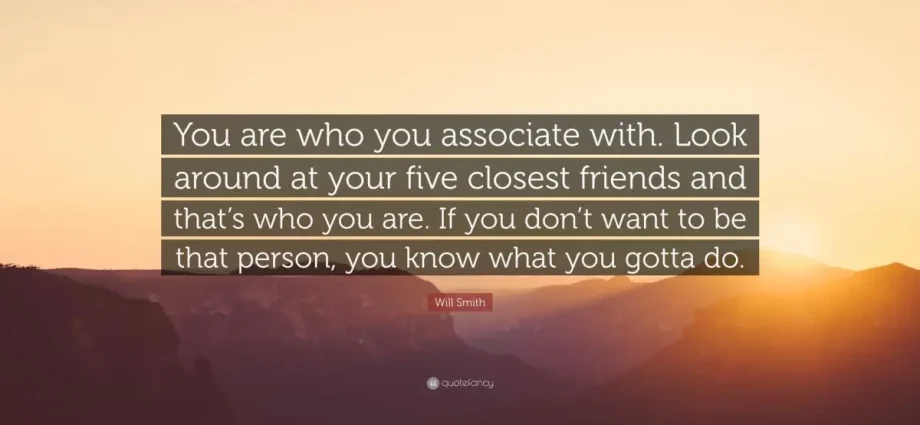“Tell me who your friend is, and I will tell you who you are” – the pattern formulated by the ancient Greek playwright Euripides is still relevant today. You can tell a lot about how we live and what we achieve in life by looking at those who are close to us. Fortunately, the environment can almost always be changed.
The environment in which we find ourselves has a huge impact on our formation, the formation of our values, worldview, goals, priorities, habits, on our life and on all areas of our activity. At the same time, we, as a rule, underestimate the influence of the environment: we continue to communicate with unpleasant people, attend uninteresting events, listen to the complaints of colleagues, endure the irritability and aggression of loved ones, completely without thinking about what damage all this can entail.
Often we communicate simply because we “have to”, or because we are used to it, or because we cannot build personal boundaries, we cannot say “no”. But as soon as we change the environment a little, refuse to communicate with those who pull us down, how much will change – both ourselves and the world around us. The vacated place in our life will not remain empty – old relationships will be replaced by new pleasant acquaintances.
Look around and you will find plenty of examples that prove that the environment influences and reflects our lives. Overweight people, as a rule, have exactly the same friends (and vice versa: those who lead a healthy lifestyle and the environment is more athletic and healthy). Around those who enthusiastically build a career or develop a business, there are hardly many people whose priority is family and children.
The environment can push for development and growth, or it can slow down and pull down
Our immediate environment conditionally sets us the limits of what is acceptable and permissible. If friends do not smoke, it is much easier to quit this bad habit (or not to start smoking at all). But if relatives, for example, abuse alcohol, it is difficult to constantly stay away and at some point such a lifestyle becomes acceptable.
The environment also influences our decisions. If everyone around them considers themselves victims and constantly complains about life, sacrifice becomes our constant companion. And if aggression, hostility, condemnation and hostility reign around, then this may well become our style of behavior. Therefore, it is important to carefully choose the people with whom we spend time. The environment can push for development and growth, or it can slow down and pull down.
Take a closer look at those with whom you communicate most often. Carefully study their problems, difficulties, desires, moods. Most likely, you will be able to understand the causes of your own problems.
How to evaluate the environment
In order to start changing something in yourself and your life, you need to realize and accept what is now. To go to point B, it is important to determine point A. A simple practice will help to assess the current situation in your environment. Take a sheet of paper, a pen and:
- On the left in the column, write down the people from your immediate environment. It can be friends, colleagues, relatives – all those with whom you communicate more and more often.
- From the top horizontally, mark your values or areas of life that are important to you: relationships, success, income, career, love, and so on.
- Make a table and rate each person in each area on a 10-point scale. For example, a friend Masha did not get married, but there is no shortage of partners – you can give her 3 points (or as many as you think is necessary). But she has achieved success in her career, to which you are still far away. 8 points. Put the numbers that come to mind first.
- Now calculate the arithmetic averages for the columns (values/spheres). These numbers reflect your chances of success in a given area. Or rather, your “ceiling”.
For example, if the arithmetic mean in the realm of relationships is 0 and you are still single, there is little chance of finding your other half. Or if the average value for joy is 2-3, it becomes clear why it is so difficult for you to enjoy life. If, for example, your environment knows how to make money, but you don’t yet, then you have quite a lot of chances to catch up with them.
Of course, this does not mean that it is worth breaking off relations with people with “zero indicators”. Friendship is a more complex, deep and multifaceted concept. Still, it may be worth thinking about how to make communication more diverse and attract people into your life who will help you change it for the better.
About the Developer
Svetlana Sherstina – psychologist. Her .










